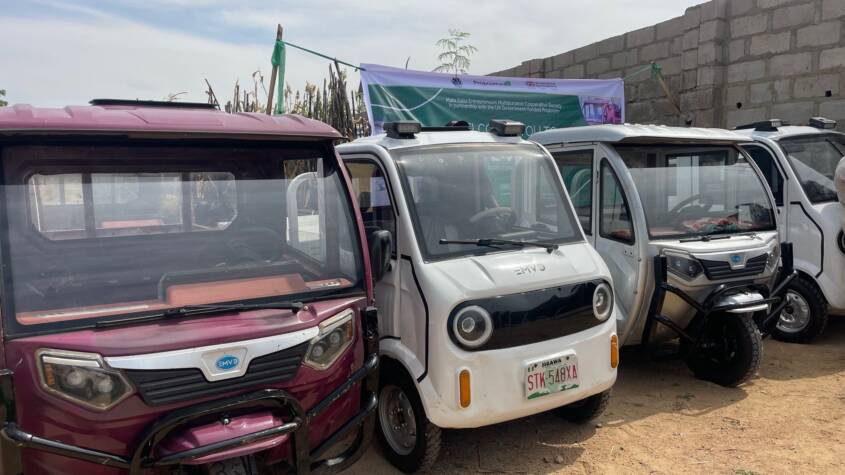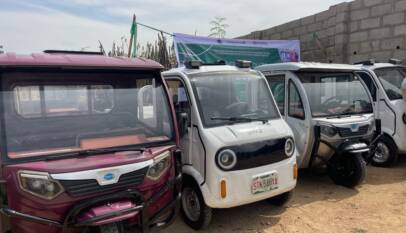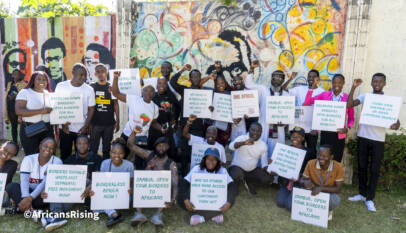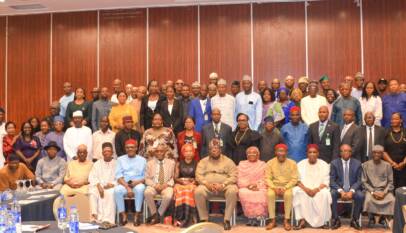Rural Women Drive Change as Kano Launches Electric Agro-Cargo Project
Under the scorching Kano sun, 30-year-old Michael Mary maneuvers her electric tricycle with quiet determination. Every turn of her wheel tells a story—one of resilience, opportunity, and a growing belief that women can lead change.
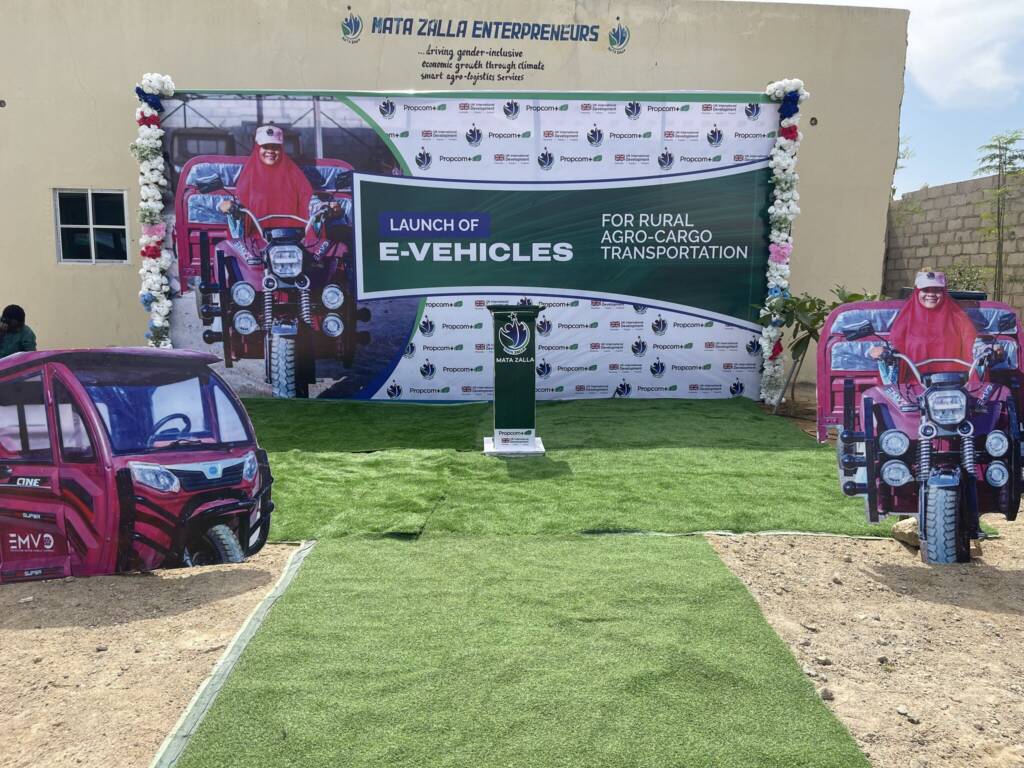
Mary has been driving electric tricycles for more than a year, transporting passengers across communities in Kano. Now, she is among the first selected cohort of the Mata Zalla “Exclusively Women” Entrepreneurs Smart Agro-Cargo Project, an innovative initiative supported by the UK’s Foreign, Commonwealth and Development Office (FCDO) through Propcom+.
Propcom+ is a UK-funded programme focused on strengthening rural economies in Nigeria by making agricultural markets more inclusive and climate-resilient. The Smart Agro-Cargo project introduces electric vehicles for rural transportation, aiming to reduce fuel dependence, cut food transport costs, and empower women across the agricultural value chain.
Before now, Mary struggled to make ends meet with high fuel prices, making life increasingly difficult. Thanks to the introduction of the electric cargo tricycle, her family’s livelihood has been transformed. According to Mary, the electric tricycles not only ease financial burdens but also support climate-smart agriculture by reducing food transport costs and post-harvest losses.
“With these electric vehicles, we no longer need to buy petrol, which costs about ₦980 per litre,” she explained. “Fuel was a major burden—without it, you couldn’t work. Now, we just need to charge the vehicle. They’re energy-efficient, and some even have refrigeration units, allowing us to transport perishable goods and maximize our sales.”
Reflecting on her journey, Mary says that although starting her career as a tricycle rider was financially difficult, she can now pay her bills independently and hopes many more women will embrace the opportunity.
A New Phase in Promoting Climate-smart Agriculture
Speaking at the official launch, Dr. Adiya Ode, Country Representative for the FCDO-funded Propcom+, said the initiative marks a new phase in advancing climate-smart agriculture, women’s empowerment, and sustainable rural logistics across Kano State and beyond.
“Today, we celebrate the next chapter,” she said. “Through Propcom+ and with continued support from the UK government, we are proud to have co-financed this agro-cargo EV initiative. Twenty electric vehicles, a solar-powered charging station, and a new logistics hub—these are not just assets. They are pathways to prosperity, climate resilience, and inclusive growth.”
Dr. Ode noted that the initiative brings together women-led groups, agribusinesses, and clean energy innovators to open new transport corridors for fruits, vegetables, dairy, and rice. She emphasized that the successful adoption of EVs will reduce reliance on combustion engines and strengthen social inclusion, environmental protection, and resilience.
Propcom+ aims to boost incomes and climate resilience for vulnerable Nigerians while contributing to sustainable and inclusive economic growth for 3.79 million people—half of whom will be women—by 2030.
“This Initiative will Strengthen Climate Resilience in Kano” – Environment Commissioner
Kano State’s Commissioner for Environment and Climate Change, Dr. Dahiru Hashim, praised the project for addressing interconnected challenges: women’s empowerment, clean mobility, and climate action. He described it as a forward-thinking initiative aligned with the state’s environmental goals and Nigeria’s transition to renewable energy.
Dr Hashim assured that the government will support the project’s sustainability through partnerships with key ministries, emphasizing that cleaner transport aligns with the state climate policy and is essential as the state battles pollution from vehicles and industries.
“The state government will do everything possible to support this initiative with charging stations, in partnership with the Ministry of Power and Renewable Energy, the Ministry of Women Affairs, and other relevant stakeholders,” he said. “We are determined to make it succeed.”
Empowering Rural Women through Clean Transport — Mata Zalla President
Hauwa Ahmed, President of Mata Zalla Cooperative Society, hailed the project as a bold step toward expanding women’s participation in agriculture and clean mobility. She noted that it builds on earlier efforts to introduce women drivers into Kano’s electric transport sector and strengthens links between smallholder farmers—especially women and youth—and markets.
“Our goal is to reduce post-harvest losses, increase farmers’ income, and promote green economic growth while creating decent jobs for women and youth,” she said. “Empowering women economically is not just a social cause—it is an economic necessity. When women have tools, knowledge, and access, entire communities prosper.”
Addressing the women of Mata Zalla, she added: “You are pioneers breaking barriers and redefining possibilities for women in Northern Nigeria. You are the true engine of this innovation, and together we will drive a greener, more inclusive future.”
A Greener Future for Kano
The launch of Kano’s electric agro-cargo project marks a pivotal shift toward a greener, more prosperous future.
For women like Mary Michael, it provides a pathway to financial independence and business ownership. For farmers, it promises lower transport costs, reduced spoilage, and improved market access.
Across Kano’s communities, the wheels of clean, women-led transport are not just moving goods— they are moving society forward.

